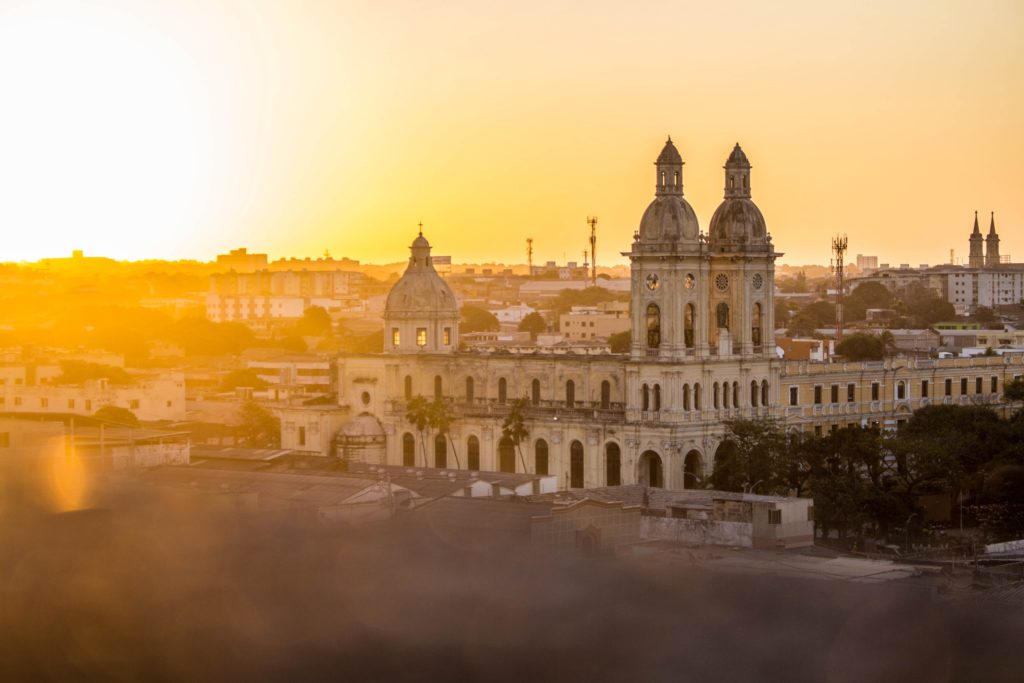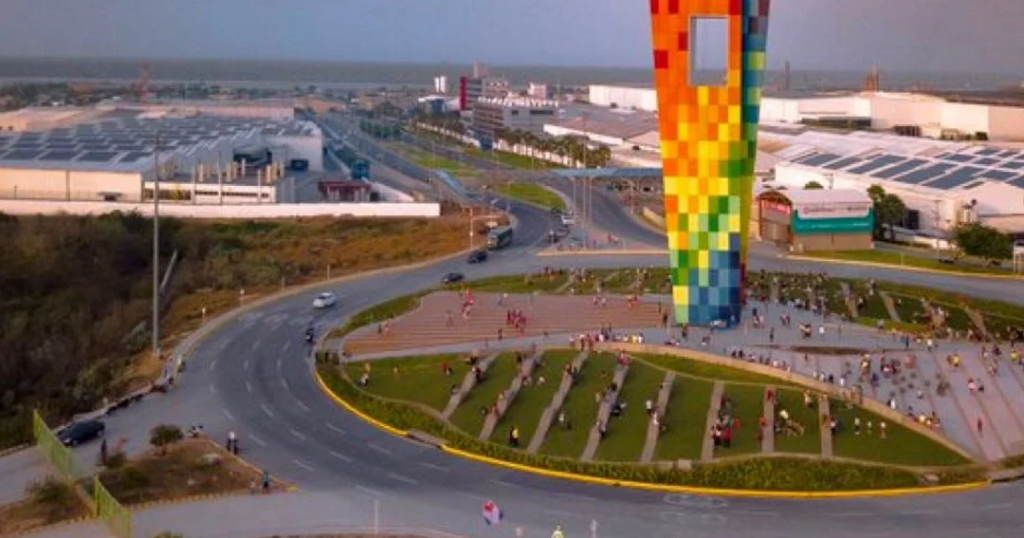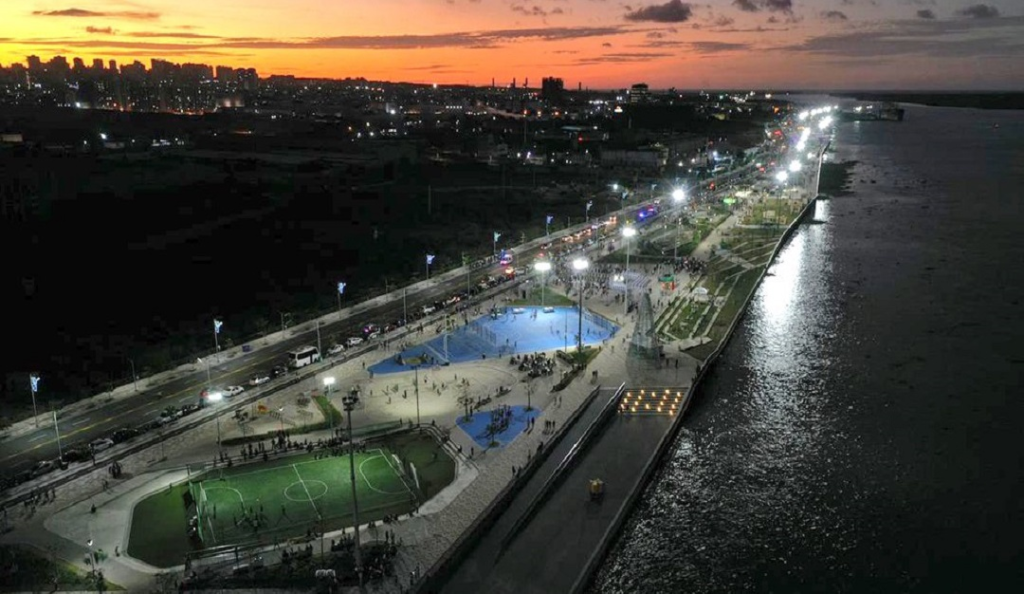
Universidad del Norte


The Fundación Universidad del Norte, in accordance with the principles, values and objectives that have guided it since its creation, has as its mission the integral formation of the person in terms of higher education, and the contribution, through its institutional presence in the community, to the harmonious development of society and the country, especially the Colombian Caribbean Region.
The Foundation fulfills this university work both in the undergraduate modality and in advanced training, its work being characterized by a broad social and humanistic content, and by the emphasis on scientific and investigative foundations to respond to the requirements of the progress of science and to the social needs of the region and the country.
The Institution seeks to train its students as thinking, analytical people with solid ethical principles, who conceive innovative ideas in order to participate in an active, enterprising, responsible, honest, critical and pragmatic way in the process of social, economic, political development. and culture of the community.
The University tends because the training that is imparted in it is carried out with suitable, qualified teachers with a deep academic vocation. To support them in this task, it is determined to have the most appropriate and advanced teaching, research and extension methods of contemporary higher education. In this sense, science, technology, the humanities and the arts will continue to be the distinctive institutional axes for student training.
Present in the life of the community through the exercise of its academic functions (teaching, research, extension and services to the external sector), Universidad del Norte ensures that its directors, professors, students and alumni remain in permanent study, analysis and research of the concrete problems of the community in which they find themselves.
Our institution is committed from its origins, in the present and into the future, with all dimensions of social, economic, political, environmental and cultural development, with social responsibility, maintaining its proper place of insertion in society, which is the academic.



Barranquilla, Colombia
Barranquilla, officially the Special, Industrial and Port District of Barranquilla, is the capital of the department of Atlántico, Colombia. It is located on the western bank of the Magdalena River, 7.5 km from its mouth in the Caribbean Sea. In 1993 it was constitutionally organized in a special, industrial and port district.9 It is the main economic center of the Caribbean region of Colombia, among the economic activities commerce and industry stand out.
The establishment of the city dates back to the third decade of the 17th century, when the sectors surrounding the Magdalena River began to be populated around grants granted by the Spanish Crown. During the time of Independence, Barranquilla distinguished itself for the support of its inhabitants for the independence cause, which earned it the status of a town in 1813. In the second half of the 19th century, it acquired strategic and economic importance when steam navigation began. by the Magdalena River, which allowed it to become the country’s main export center until the first half of the 20th century.
Recommendations
The average temperature in Barranquilla is 27.4 °C, so we recommend that you wear very cool clothes to resist the heat.
To get around the city you can use the Integrated Transport System. This system operates with rapid transit buses and will allow you to reach many tourist places.
Remember that the city has accommodation such as hotels and apartments that are strategically located and accessible to all budgets.
Keep in mind that getting to Barranquilla is very easy thanks to the Ernesto Cortissoz International Airport, which has important national and international connections.








From the end of the 19th century until the 1930s, Barranquilla was the main point of entry into Colombia for thousands of immigrants and advances such as aviation, commercial radio and telephony, as well as various sports.
Barranquilla’s population is 1,274,250 people, making it the fourth most populous city in the country behind Bogotá, Medellín and Cali. The city is the nucleus of the Metropolitan Area of Barranquilla, which is also made up of the municipalities of Soledad, Malambo, Galapa and Puerto Colombia. The conglomerate is home to 2,199,507 inhabitants, and also occupies the fourth position among the country’s conurbations.3 As the departmental capital, Barranquilla is the seat of the Government of the Atlantic, the Departmental Assembly and the Superior Court of the Atlantic, the highest judicial body from the Department.
Barranquilla is home to one of the most important folk and cultural festivities in Colombia, the Barranquilla Carnival, declared Cultural Heritage of the Nation by the Colombian Congress in 2001 and Oral and Intangible Heritage of Humanity by UNESCO in 2003.1112 The city was designated the American Capital of Culture in 2013, host of the 2018 Central American and Caribbean Games, and hosts the 2027 Pan American Games.
Before travelling
VISAS
Citizens of some countries need to present a tourist visa that must be processed at Colombian embassies or consulates abroad. In the following link you can verify if you require a visa or not.
Check the countries that require a visa at https://www.cancilleria.gov.co/tramites_servicios/visa/requisitos.
Likewise, review Resolution 1128 of 2019: https://www.cancilleria.gov.co/sites/default/files/resolucion_1128_de_2018.pdf.
For more information about arriving to Colombia visit Colombia Travel Information site
